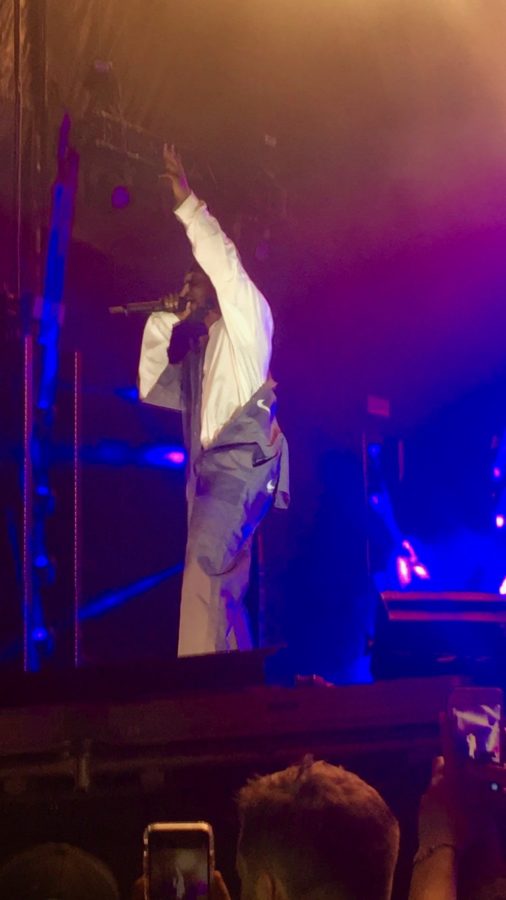Opinion: There’s still a lesson in ‘To Pimp a Butterfly’
Kendrick Lamar performs at the 2017 Voodoo Music + Arts Experience. Lamar played several songs from “To Pimp a Butterfly”. SIDNEY OVROM / The Maroon. Photo credit: Sidney Ovrom
March 24, 2019
Seldom does a piece of music feature the struggle of young African-Americans, the impact of gang violence, the celebration of African roots and the embrace of faith — all laced with funky beats, jazz horns and the raspy voice of Kendrick Lamar.
Four years ago, the Compton rapper dropped, “To Pimp a Butterfly,” his third studio album and one of his most decorated pieces in his discography.
The album broke records within the genre and remained a favorite among his fans and music-lovers as a whole.
But to me, the album is more than just a successful piece of music. It’s an album that I can resonate with to this day.
The album is unique in that it sets up a hidden narrative in the form of prose verses that outro each song.
As the listener progresses deeper through the track list, more of the poem is revealed, until Kendrick spits out each line to his own personal idol, Tupac Shakur.
He mentions his own struggles of the responsibility of his fame, the numbing monotony of acting on his vices and the realization that this is what his own culture deems as successful.
Money, fame, sex and drugs are the end goal, the ultimate reward of selling your art, your talents and yourself to the masses.
But Kendrick reflects, he looks back at the life of gang violence, poverty and racism that he once grew out of. How was his life any better?
He realizes that a sense of respect for himself is what is plaguing him. His failure to embrace who he is and where his ancestry lies is the root of his issue, and he sees the similar problem with his home, a failure to connect with one another and embrace who we are as people.
Much like the evils of Lucifer haunt him, the lack of love, respect and generosity terrorize his home.
Kendrick then returns with his new-found knowledge, eager to teach, unify and provide a better life for the people back home.
The album tells a tale of redemption, detailing the struggles of a man who is idolized by millions, who fails to see his true self. Clouded by a makeshift reality, he consumes instead of gives, making him realize just how hungry his own people back home are.
Through the tone of his voice and his choice of lyrics, we hear just how sorrowful Kendrick is but also how joyous he feels once he realizes what’s really real.
The album is full of themes and tropes but Kendrick’s tale is one that sticks out to me, not just as a fan but as a human.
I too struggle. I too submit to vices and temptations. I get lost in a cloud of other people’s desires and expectations but I need to wake up. We all do.
There’s hope beyond the cocoon and Kendrick details the way to become the butterfly.








